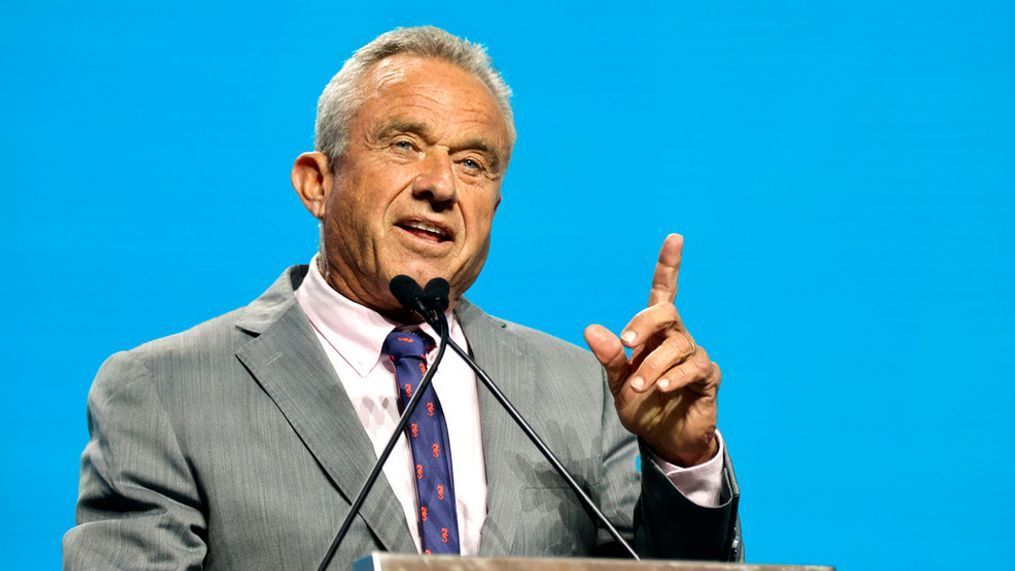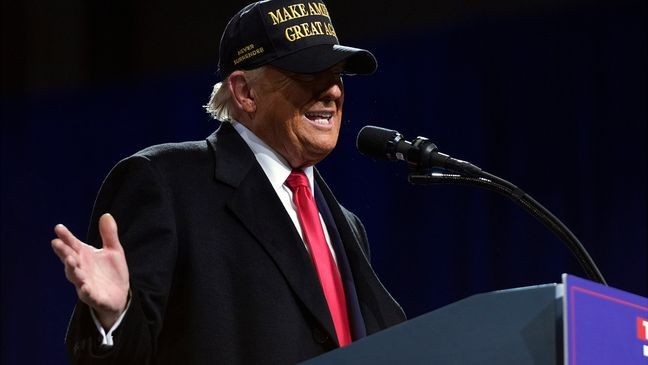Trump health team expected to challenge establishment perspectives in Washington
WASHINGTON (TNND) — Before 2020, the National Institutes of Health was not on the radar of most Americans. The agency turned out to be extremely important during Donald Trump’s first term in the White House.
During one of many Coronavirus Task Force Briefings at the White House, Dr. Anthony Fauci spoke about the need to follow guidelines the team had put in place.
“In order to be able to contain and curtail this epidemic to not reach its maximum capability, we have a two-pillar approach," he said talking about the need for containment and mitigation of COVID-19, already spreading rapidly.
As Trump and his team navigated the pandemic and made unprecedented changes to the way we lived, some in the medical field fought back, including the man chosen to lead NIH this time around: Jay Bhattacharya.
Speaking last month at a Stanford University School of Medicine pandemic policy conference, he discussed what he views as widespread failure in the pandemic response, including the way he and many colleagues were widely criticized for offering ideas and perspectives that did not fall in line with the establishment's point of view.
Nobody has a monopoly on the truth," said Bhattacharya, a tenured professor at the Stanford School of Medicine.
He’s a medical doctor with a PhD in economics.
During the pandemic, his ideas were called "fringe," in particular after publishing a paper, he called the Great Barrington Declaration (named for the city in Massachusettes where it was signed), raising “grave concerns about the damaging physical and mental health impacts of the prevailing COVID-19 policies."
In July 2022 with Sinclair's Full Measure, he provided details.
"The Great Barrington Declaration said, 'Let's devote our resources to protecting the older populations and other people with chronic conditions, the predisposed to bad outcomes if they get COVID. And for the rest of the population, let's live as close to normal lives as possible.' That's it. That's the strategy."
Emails now made public reveal an effort to launch a “quick and devastating public takedown” written by Dr. Francis Collins, then director of the NIH.
When you look at Trump’s health team overall, that message of challenging the establishment view is one his nominees seem to hold dear.
In an interview with Sinclair in August, Dr. Marty Makary, now chosen to lead the Food and Drug Administration under Trump, said, "If we stick with the old guard medical establishment or a small group of doctors at the top are making medical decisions for everyone and silencing those who have different opinions, we’re not going to advance medical science."
Robert F. Kennedy Jr. Trump’s pick to lead the Department of Health and Human Services, has challenged everything from vaccines to fluoride in water, which the American Dental Association has said is proven to prevent tooth decay.
Trump's former Surgeon General Dr. Jerome Adams raised alarm about vaccine hesitancy as well in a post on X.
"The new administration had better have a strong infectious disease response plan- and had better ensure public health and vaccine confidence stays high. Or they’ll be distracted with outbreaks for 4 years this time instead of 1."



